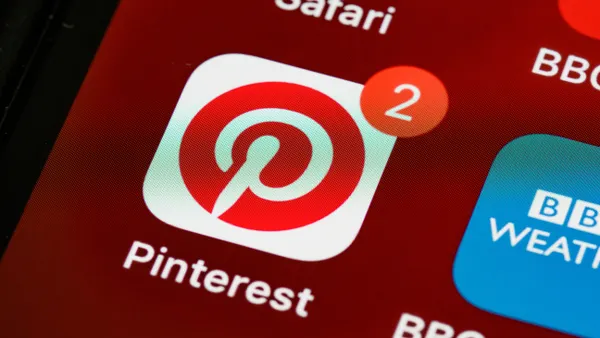Dive Brief:
- Overstock.com CEO Patrick Byrne resigned from the company on Thursday, saying in a statement that he had become "far too controversial to serve as CEO."
- The resignation follows official statements Byrne released last week confirming that he had assisted in federal investigations into former presidential candidate Hillary Clinton and President Donald Trump. The statement, titled "Overstock.com CEO Comments on Deep State," followed a media report that Byrne provided documents to the Department of Justice.
- Stepping in as interim CEO is Jonathan Johnson, a board member and president of Overstocks's Medici Ventures subsidiary, which invests in numerous blockchain applications.
Dive Insight:
Byrne's comments about the "deep state" last week sparked an investor sell-off that perhaps made his departure inevitable. Following Byrne's statement, which alluded to federal investigators as "the Men in Black" and including numerous obscure references, his company's stock fell by more than 30% over the following days. All of this came as Overstock contemplates a possible sale of its e-commerce business.
What exactly Byrne shared with the DOJ isn't clear. "This is going to become the greatest political scandal in US history," Byrne told Fox News contributor Sara Carter, who first reported that Byrne had given the DOJ documents. "If we survive it, and if Rule of Law returns to America, it will be due to one man: [Attorney General] Bill Barr."
Adding to the buzz around Byrne, he was reported to have had a romantic relationship with a woman now serving jail time after being accused by the federal government of spying for Russia and being caught up in the government's probe of Russian interference in the 2016 election.
In his statement Thursday about his departure, Byrne said he went public with last week's comments because "my duty as a citizen precluded me from staying silent any longer."
"Though patriotic Americans are writing me in support, my presence may affect and complicate all manner of business relationships, from insurability to strategic discussions regarding our retail business," he said, adding that he was "in the sad position" of resigning.
Byrne had a pattern of colorful, controversial and sometimes head-scratching statements. As one example: After catching flack in May for selling millions of dollars worth of Overstock shares, he sent out a combative letter to shareholders. "Not once have I ever asked a shareholder for his reasons in any decision he made," he wrote at the time. "Yet, given the consternation this has caused, I will give answer, to preclude further recurrence of mass vapors."
A controversial CEO is the last thing Overstock needs at the moment as it considers an asset sale and tries to right its business. It posted a $112 million loss in 2017 and then nearly doubled its loss the following year. Byrne said in a shareholder letter about its first quarter that the company had cut substantial costs out of the business. Nonetheless, it still posted a $42.9 million loss in Q1 (which was an improvement from the prior year) and a sales decline of 17.6%.
Byrne said in his resignation that Overstock returned to positive EBITDA after an "ill-fated experiment last year in copying our competition's strategy." That competition (i.e., Wayfair) co-starred in side-by-side graphs Byrne included in his resignation statement, showing divergent profitability between the two companies.
The company was founded in 1997 in Salt Lake City. Its website (originally dubbed Deals.com) launched two years later, and was acquired by Byrne and renamed Overstock.com. By 2000, it made more than $25 million in revenue. Today the company makes about $1.8 billion a year in revenue, almost all of it from retail even as it heavily promotes its Medici business, which the company says aims to advance the "concepts of 'Government as a Service' and a 'Technology Stack for Civilization.'"














